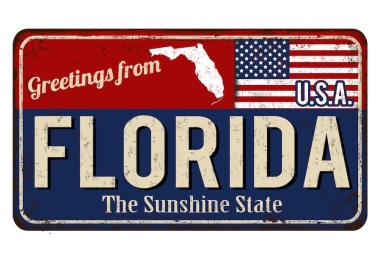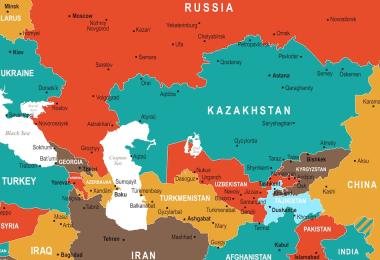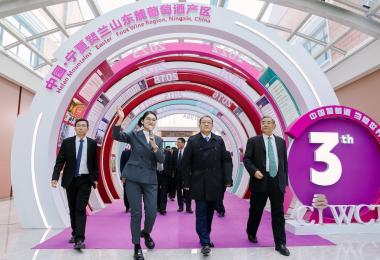In Italy’s northeast, the Veneto extends from the looming Alps to the Adriatic Sea bragging Venice as its capital. Undoubtedly Italy’s most important wine hub, the region produces the highest volume of DOP wine owing to a collection of Italy’s most prolific denominations – Prosecco DOC, Delle Venezie DOC, Conegliano Valdobbiadene DOCG and Soave DOC. Veneto is also home to Italy’s first viticulture and oenology school, the GB Cerletti Wine School, established in Conegliano in 1876 as well as some of Italy’s most recognized brands.
Home to Vinitaly
Fittingly, the Veneto plays host to Vinitaly, Italy’s annual wine and spirits exhibition and the largest of its kind in the world. Held in the romantic city of Verona over a four-day period in April, the predominantly trade oriented fair is organized by Veronafiere. The 2019 edition saw over 4,500 Italian exhibitors and 125,000 visitors from 145 countries. Last year was the first since its inception in 1967 that Vinitaly was not held. It was also cancelled this year.

Giovanni Mantovani, CEO of Veronafiere
“It was a complicated operation with onerous consequences on the economic front,” says Giovanni Mantovani. With a law degree from the Università di Bologna and a master’s in business administration, Mantovani has been CEO of Veronafiere since 2001. He is quick to explain that the show did go on with the Vinitaly’s various offshoots. Wine2Wine switched to a completely online format less than four weeks before the in-person industry forum was scheduled in November 2020. At the same time, Wine to Asia went ahead with exhibitors and visitors in Shenzhen, China. International events are ongoing with a smaller scale Vinitaly Special Edition slated for 17-19 October in Verona.
For Mantovani, the shift to digital was crucial especially as Vinitaly seeks to improve the service it offers producers. “Tools initially thought to be temporary have now become permanent in our trade fair strategy which will increasingly integrate the essential physical presence with digital content and media.”

Stevie Kim, managing director of Vinitaly
As managing director of Vinitaly International, Stevie Kim oversees much of Vinitaly’s offshoots through her media agency Just Do the Work. Korean-born and US-raised, Kim has been living in Italy for 30 years. Besides Wine2Wine, she spearheads Vinitaly International Academy offering certified Italian wine education, OperaWine in partnership with Wine Spectator, and the 5StarWines competition. These three went ahead as planned in June 2021 with OperaWine welcoming 1,500 attendees. “It was the first international tasting like that since the pandemic,” says Kim who believes the pandemic accelerated the good with the bad but will ultimately serve to make the wine business more efficient. “Italian wineries have finally discovered e-commerce, social media and are conversing directly with their audience. That is great for the Italian wine industry.”
Where the big wine companies are headquartered
A number of Italy’s biggest wine firms are headquartered in the Veneto including the largest – Gruppo Italiano Vino (GIV), which is based in the town of Calmasino within the Bardolino region. Purchased by the Riunite and CIV cooperative in 2008, GIV is run independently and owns a total of 15 wineries in eleven regions for a combined 1,706 hectares. In 2020, the company reported a turnover of €211 million (down seven percent from 2019) and a consolidated total of €393 million with other owned brands. CEO since 2014, Roberta Corrà says that while restaurants were closed, “sales in the supermarket chains increased.” The company engaged with consumers through their e-commerce site Vinicum, which was launched well before the pandemic in April 2016 as much as a communication tool as a sales portal. “Vinicum was also economically a success during the lockdown since we could guarantee the delivery of wines from all over Italy.” Vinicum currently serves the domestic market exclusively, though Corrà shares plans to expand distribution to other countries.
Additionally, the Veneto is the birthplace of some of Italy’s largest private companies. According to journalist Anna di Martino’s last annual classification reported in Italy’s Corriere della Sera newspaper, in 2019, bottler Casa Vinicola Botter Carlo & C was tied for first place (with Tuscany’s Antinori) with an annual turnover of €217 million. Earlier this year, the Botter family ceded a majority stake to Milan-based Clessidra private equity fund. Similarly, Veneto-born Enoitalia, which weighed in at fourth place, was acquired by Milan-based giant Italian Wine Brands.
With a revenue of €205 million in 2019, Zonin 1821 placed third and is Italy’s second largest private landowner (after Antinori) with almost 2000 hectares under vines. Celebrating its 200th anniversary, Zonin has grown from its roots in Gambellara to nine wineries in seven of Italy’s regions and two foreign properties. “We always felt that being local was key. Especially for quality, you need to control the vineyards,” states Francesco Zonin who owns the company with his brothers Domenico and Michele.

Sandro Bottega
Sandro Bottega attributes the Veneto’s success to a hardworking attitude, even in the face of adversary. “This has made the northeast one of the greatest regions with a sustainable economy,” he says. Producing approximately five million bottles of Prosecco annually, Bottega is by no means the largest Prosecco company. However, its trademarked mirrored gold bottle is one of the most recognizable and Sandro Bottega has built Bottega into the second largest sparkling wine brand in travel retail after Moët & Chandon. The pandemic was obvious a “disaster” for this. “We lost 27 percent of our business in 2020,” says Bottega. However, with a renewed focus on the domestic market, sales in the last quarter were up 25 percent.
Independent winegrowing
Equally important to Italy’s wine fabric are its thousands of small independent winegrowers who vinify and bottle wine exclusively from their own grapes. Giving voice to these is the Federazione Italiana Vignaioli Indipenenti (FIVI) which counts 1,300 members with an average of 10 hectares per estate. Matilde Poggi, owner of Le Fraghe in the Veneto’s Bardolino denomination, has been the president of FIVI since 2013 and lobbies at the national and European levels. She is currently pushing to change the representative criteria within consortiums. “The way it functions now, the power comes from those who produce the most while small producers don’t count at all,” she says. The other hot button is the bureaucratic load which is the same for all producers regardless of size. “For a small winery, the impact is much weightier because it is managed by the same person who takes care of the vineyard, the cellar and the sales.” Poggi is also the newly elected president of the Confederazione Europea Vignaioli Indipendenti (CEVI).

Luca Pizzighella, SignorVino commercial director
High-end retail
In Italy, wine retail is dominated by large supermarkets with small independent enotecas at the other end of the spectrum. From his nerve-centre in Verona, Italian business mogul and founder of the Calzedonia Group, Sandro Veronesi sought to shake up the landscape applying his expertise in the fashion industry to wine. He established SignorVino in 2012. The chain of stylish specialized wine stores/wine bars now boasts 19 locations throughout Italy with 1,500 labels of exclusively Italian wine and a kitchen focused on authentic regional cuisine. The company engages with customers through masterclasses, tastings and events with live music and entertainment. “The format has allowed us to offer and communicate Italian wine, its complexity and richness, in a simple and informal manner,” says Luca Pizzighella, SignorVino commercial director.
SignorVino reports closing 2019 with an overall turnover of €35 million between restaurant and wine sales. That represents a growth of ten percent over the previous year. As for 2020, one of the many challenges was to accomplish various projects announced in November 2019. Besides opening five new locations, SignorVino was able to implement an omnichannel e-commerce system by June 2020 which allows customers to receive their wine anywhere in Italy with free delivery for purchases over €59. The goal for 2022? “A total revenue of €50 million,” says Pizzighella.








